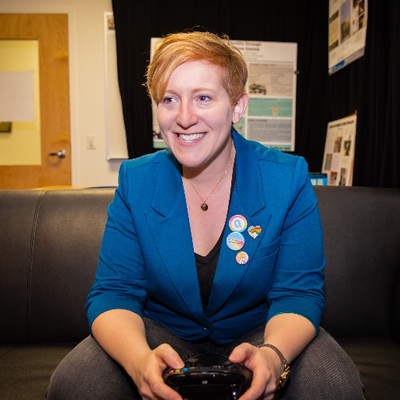I can’t believe I have to say this: there is no such thing as being “queer enough.”
“Queer” is a term of self-identification. No one is the gate keeper of queerness. In any objective sense, you cannot be deemed more or less queer. Queerness is not a competition. There is no scoring system that gives you the right to speak as an official representative of queerness, or a threshold under which you become illegitimate, insufficiently non-normative, and should be silenced. “Queer” is, by definition, an inclusive term. The boundaries between gay and bi, between trans and cis: these are debated by their respective communities, who sometimes feel the need to create distinction lest they lose their identities. Any community that calls itself queer, on the other hand, simply reinstates the prejudices and ignorances of heteronormativity when they sit in judgment of a potential member and claim that that person’s sexual activities render them unacceptable.
I consider myself queer. Though I identify (somewhat ambiguously) as female and I am currently only romantically involved with people who identify (somewhat ambiguously) as male, I do this not in spite my relationship status, but in part because of it. See? I am tempted already to fall into the trap of listing off my queer qualifications, of fearing that I need your approval to proclaim my identity — of assuring you that I am bi and have been my whole life, that I have dated women in the past, that I am also kinky and polyamorous, and that my love life, though it may appear “normal” from a few, limited perspectives, is not characterized by cultural privilege. In fact, it stirs up daily confrontations with prejudice, disdain, and derision, ranging from the subtle to the explosive. When I came out to my parents, my father stopped speaking to me. Am I queer enough now?
What makes me truly angry and truly sad is the judgment I occasionally receive from other queer people. By and large, I find that those people who identify as queer are the same people with whom I feel most at home — and after twenty-seven years of bullying, emotional abuse, and gender confusion, feeling at home with anyone is, for me, a rare and deeply touching experience. To have my queer identity questioned or denied by someone I respect, sometimes even someone I care about, makes me mourn the potentially impossible concept of a welcoming “queer community.” Have I exceeded the limit for time passed since I last made out with someone of my gender? Have I been called a “dyke” on a public bus an unacceptably low number of times? Should the rainbow flag on my bag be 12″ wide instead of 4″? These are absurd and arbitrary criteria for denying someone subjecthood and the agency of self-definition.
When I am made unwelcome, either implicitly or explicitly, by my queer-identified peers, I am left in a position of cultural ostracization that should sound strikingly and embarrassingly familiar to anyone who has experienced intolerance in response to their socially unacceptable sexuality: even if I wanted it, I am far too much of an outspoken pervert (and I say that word with extreme pride) for normative acceptance, and apparently I too frequently walk hand-in-hand with a man to merit a place in codified counter-culture. Lucky me, I become the new abject, and my own “queer community” becomes the loud speaker for the next generation of oppressive, condemnatory norms. In such moments I and those like me face, instead of an inclusive, safe space, one more site for judgment. Holier than thou. Queerer than thou.


Yes! I struggle with this too. You might like this piece I wrote about it: http://biancajames.blogspot.com/2011/04/queer-enough.html
I agree! I made a short film about this a few years ago, actually called Queerer Than Thou. Check it out: http://youtu.be/e_F3iev3Nlc